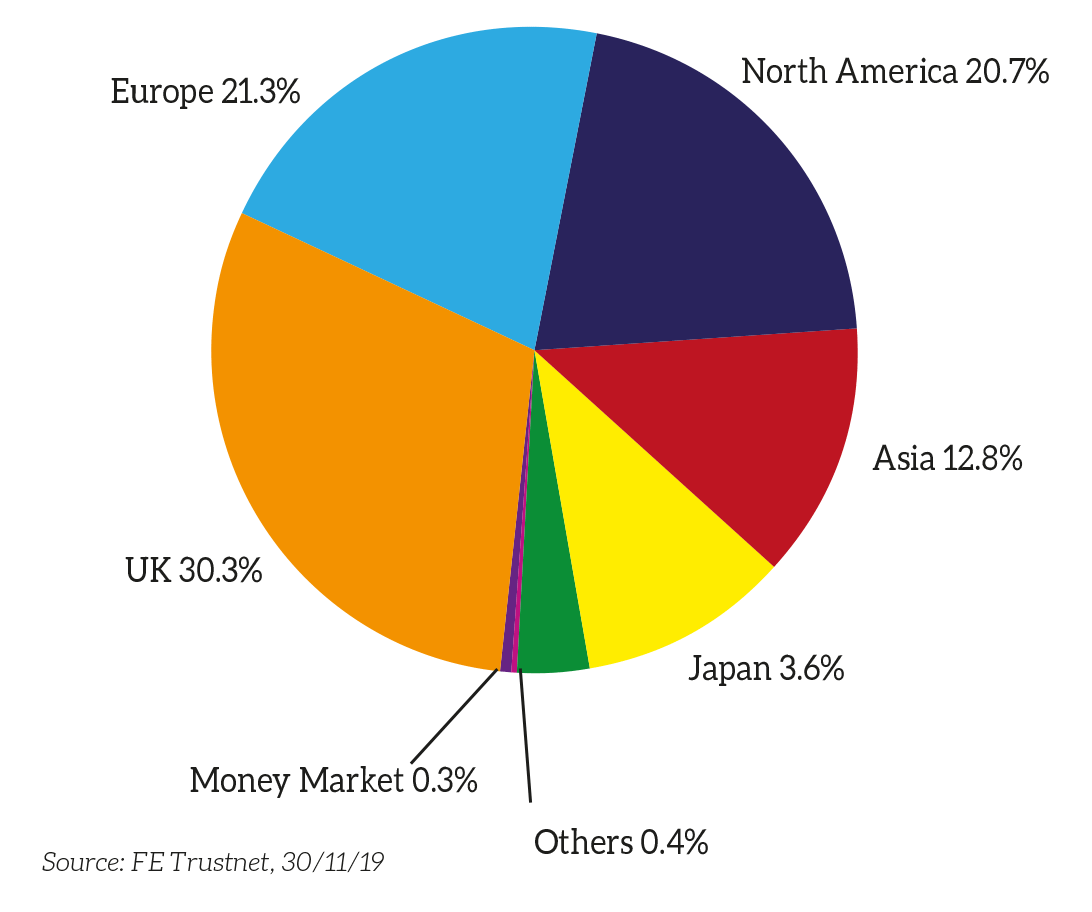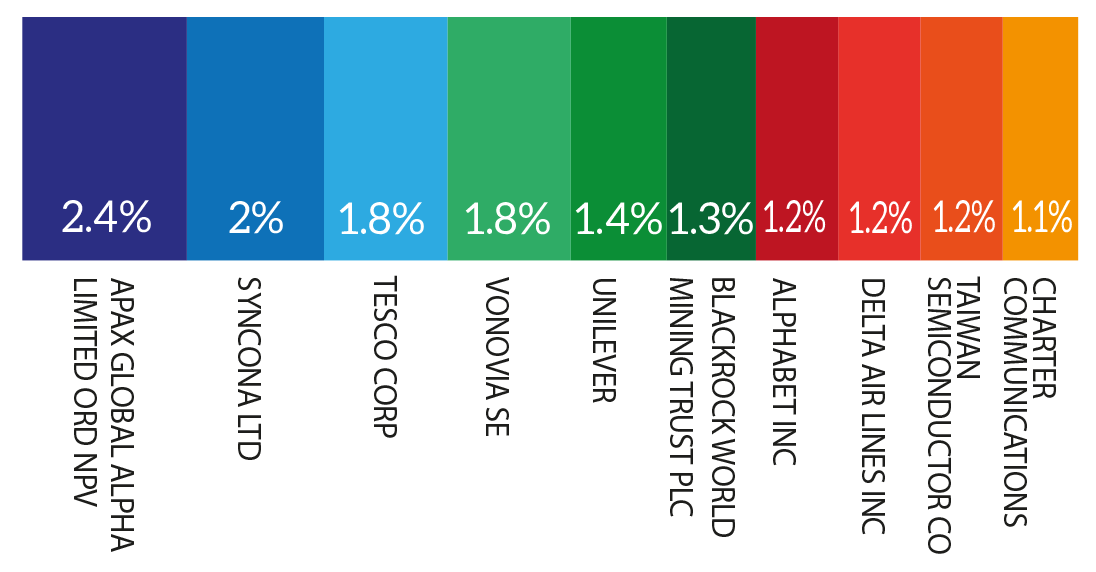Moneywise First 50 Funds interview: Andrew Bell, Witan Investment Trust
Andrew Bell, chief executive of Witan Investment Trust talks to Brean Horne about the trust’s objectiv…
22nd January 2020 11:36
by Brean Horne from interactive investor
Andrew Bell, chief executive of Witan Investment Trust talks to Brean Horne about the trust’s objectives, his passion for the investment business, plus his top tips for beginner investors

What is Witan Investment Trust?
Witan Investment Trust is a global fund, which launched in 1909. With a market value of just over £2 billion, we use a multi-manager structure to invest in global equity markets.
The trust’s aim is to outperform the indices we invest in and provide our investors with dividend growth.
Why should people invest in your trust?
We offer diversified, actively managed exposure to global equities and deliver interesting performance, which is distinct from the index.
Our strategy deploys a blend of managers to capitalise on each of their strengths. This allows us to smooth out the peaks and troughs in performance over time.
One thing we try to avoid is overdiversification. Having too many types of asset can result in a very complicated index, which doesn’t benefit the investor.
What gets you out of bed in the morning?
Two things: the first is my love of the investment business. I have dedicated most of my working life to working in politics or economics.
Wealth management allows me to take the impact of political and economic events on markets and turn that to the advantage of investors.
The second thing is my one-year old Labrador puppy. She is wonderful and I love having a run around in the garden with her every morning.
What is the first investment you made?
My first investment was in the privatisation of British Telecom (BT) in the early 1980s.
The shares were priced at around £1.40 and you only had to put down 50p up front. The rest could be paid off in instalments.
I was working in the Middle East at the time and applied for a few hundred shares through a British broker.
It really appealed to me as an investment option. The £1.40 share price rose to £2, meaning that the 50p you initially put down effectively doubled over night.
What is your best and worst investment decision?
One of the best investment decisions has been to appoint Lindsell Train to invest 10% of our assets in 2010 in UK equities.
It has achieved an annualised return of 15.5% from September 2010 to the end of November 2019. That is twice the annual rate of return from the UK stock market over the same period.
More generally, our contrarian approach to investing has been beneficial. When the markets are nervous and selling off, we tend to move in the opposite direction.
This is because assets become cheaper and reflect a risk that was previously unknown to investors. That curiously may mean that it is safer to invest in that asset.
And on the other hand, when the market rallies, we may take that as an opportunity to sell certain assets to reduce risks when the markets become more expensive.
Witan’s worst decision was investing half a per cent of our assets in the Ludgate Environmental Fund in 2010, which eventually stopped trading on the stock exchange in July 2017.
During that period for every pound we had invested, we got about 40p back. The rest of Witan’s portfolio did exceptionally well during that period and had doubled.
A couple factors were working against us. The fund managers proved to be quite unlucky. They made investment decisions that we agreed with but were for some reason unable to deliver good returns.
Another issue was that environmental investing was very niche at the time, so there was very little interest other than that of local authorities.
What top tip would you give to a beginner investor?
It is important to keep your first investment simple. Look for a sensible diversified fund that is well managed and ideally where the manager has a significant investment as well so that their interests are aligned with yours.
Concentrating your investment in one stock or asset can be very risky and if that company goes bust, you will lose all the money you put in.
People can often be tempted into investing when they hear someone bragging about making big returns on a particular stock, but it is vital that your first investment lays down a foundation.
Once that gets going and you are happy with its performance, then you can start looking at specialist stocks.
Witan Investment Trust stats
Launch: 01/01/1909
Fund size:
£2,061.39 million
Charge: OCF: 075% (exc. performance fees)
Yield: 2.19%
13/01/2020
Source: FE Trustnet
The manager behind the fund
Andrew Bell is chief executive of Witan Investment Trust and was appointed in February 2010.
Bell previously worked as head of research at Rensburg Sheppards and as an equity strategist and co-head of the investment trust team at BZW and CSFB. Prior to that he worked for Shell in Oman, leaving to take a Sloan Fellowship at the London Business School.
Sector breakdown

Top 10 holdings

Discrete performance of the fund over five years
Period | 0-12 m | 12-24 m | 24-36 m | 36-48 m | 48-60 m |
Witan Investment Trust plc Ord 5p | 18.2 | -6.9 | 23.6 | 25.0 | 0.6 |
IT Global | 18.3 | -3.7 | 23.7 | 27.8 | 3.1 |
NAV | 18.1 | -7.8 | 18.2 | 33.3 | 0.3 |
Period | 0-12 m | 12-24 m | 24-36 m | 36-48 m | 48-60 m |
Source: FE Trustnet, 13/01/20
This article was originally published in our sister magazine Moneywise, which ceased publication in August 2020.
These articles are provided for information purposes only. Occasionally, an opinion about whether to buy or sell a specific investment may be provided by third parties. The content is not intended to be a personal recommendation to buy or sell any financial instrument or product, or to adopt any investment strategy as it is not provided based on an assessment of your investing knowledge and experience, your financial situation or your investment objectives. The value of your investments, and the income derived from them, may go down as well as up. You may not get back all the money that you invest. The investments referred to in this article may not be suitable for all investors, and if in doubt, an investor should seek advice from a qualified investment adviser.
Full performance can be found on the company or index summary page on the interactive investor website. Simply click on the company's or index name highlighted in the article.